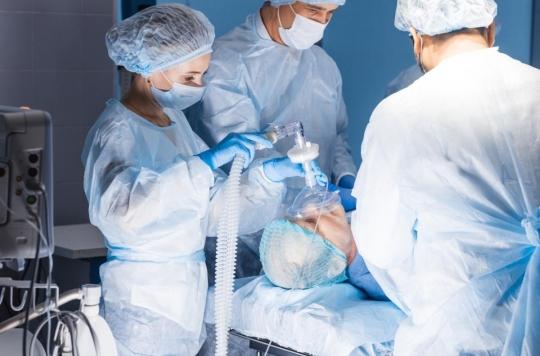Researchers have compared the effects of general anesthesia to those of local anesthesia. None would have an impact on the onset of Alzheimer’s disease.

What are the long-term consequences of surgery? Some scientists fear that general anesthesia degrades the brain, thus promoting the onset of cognitive impairment. In Journal of the American Geriatrics Society, researchers have tested this hypothesis. They compared the effects of local anesthesia with those of general anesthesia on a large group of patients, followed over the long term.
A lack of connection
Their study was carried out using data from 15,000 people aged 66 and over. All these people underwent surgery: some under local anesthesia, the others under general anesthesia. The researchers created pairs: in each of them, people were of the same sex and age, the only difference was the type of anesthesia received. All participants were followed for 5 years after their operation. The scientists observed which ones developed dementia and compared the frequency of this disorder with the type of anesthesia undergone. For them, the analysis of the results is clear: there is no difference between the two types of anesthesia concerning the risk of dementia. General anesthesia has no influence on the risk of suffering from Alzheimer’s disease.
Rare complications
The french society of anesthesia and resuscitation (SFAR) defines general anesthesia as “a state comparable to sleep, produced by the injection of drugs by infusion, and/or by respiration”. Three types of drugs are generally associated: hypnotics to allow the loss of consciousness and maintain it, analgesics to reduce or even prevent pain, and muscle relaxants to create paralysis and prevent the muscles from moving.
The SFAR recalls that serious complications following this medical procedure are rare, but side effects are frequent upon awakening. Patients may experience nausea, sore throat, or numbness in limbs. “Memory problems or a decrease in the faculties of concentration can occur in the hours following the anesthesia., says the organization. If these problems persist, it is essential to consult. Each year, nine million general anesthesias are performed in France.

.
















